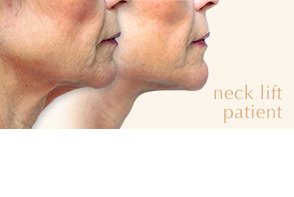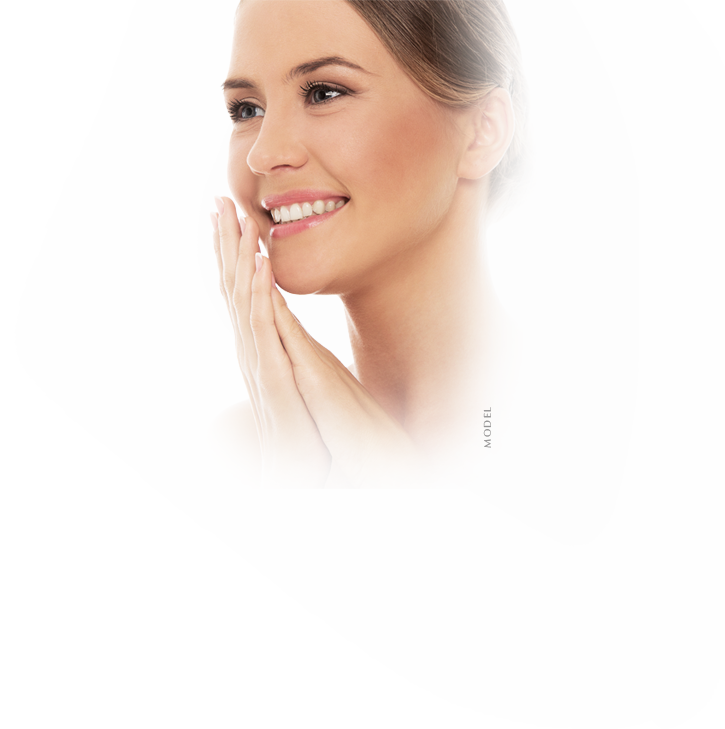Asheville Laser Skin Treatments
Few of us are lucky enough to have smooth, flawless skin. Maintaining a youthful, clear complexion gets even more difficult as the years pass—our skin begins to show the effects of sun damage, habits such as smoking or tanning, and the natural aging process. Rather than continue to try and cover unwanted blemishes with make-up, why not give your skin a fresh start?
Laser skin resurfacing can help improve skin tone, texture and appearance by removing dull, damaged skin and promoting the skin’s natural healing process. Following treatment, healthier, more youthful-looking skin emerges to reveal a more radiant, clear complexion.
What skin problems can laser resurfacing treat?
Lasers can address visible skin damage on many levels. Among the conditions Dr. Conway can treat with laser resurfacing are:
- Hyperpigmentation
- Fine lines & wrinkles
- Dullness & skin laxity
- Vascular lesions
- Precancerous growths
- Rosacea
- Acne scars
How laser resurfacing works to improve your skin
Skin lasers come in many different brands, and each uses a slightly different technology. Lasers can be “ablative” or “non-ablative.” An ablative laser removes a portion of the skin’s outer layers to lessen visible damage and allow smoother, healthier skin to heal over. Non-ablative lasers do not remove any skin cells, but work by heating the skin to encourage collagen production. Both types of lasers are used to treat wrinkles, acne scars, and pre-cancerous lesions, as well as to tighten skin, address pigmentation problems, and treat vascular lesions.
Choosing your laser treatment provider
Depending on where you go in Asheville, you will find different lasers used in each practice. The most important thing you can do to ensure a safe procedure with beautiful results is to choose a provider with extensive training and experience in laser resurfacing.
- Key Benefits
- Glossary
- Improved Skin Texture: Laser skin resurfacing smooths out uneven skin texture, including roughness and scarring, resulting in a softer and more uniform skin surface.
- Reduction of Fine Lines and Wrinkles: The treatment effectively reduces the appearance of fine lines and wrinkles, particularly around the eyes and mouth, for a more youthful look.
- Pigmentation Correction: It addresses skin discoloration issues such as age spots, sunspots, and hyperpigmentation, evening out skin tone.
- Scar Reduction: Laser resurfacing can significantly reduce the visibility of acne scars and other types of scarring on the skin.
- Quick Procedure with Minimal Downtime: Depending on the laser used, treatments can be quick and require minimal downtime, especially with non-ablative lasers.
- Ablative Laser: A type of laser that removes the outer layer of the skin (epidermis) and heats the underlying skin (dermis) to stimulate the growth of new collagen fibers, resulting in smoother, firmer skin.
- Collagen: A protein in the skin that provides structure and elasticity; laser skin resurfacing stimulates collagen production to improve skin texture and firmness.
- CO2 Laser: A carbon dioxide laser that is commonly used for ablative laser resurfacing, effective in treating wrinkles, scars, warts, and other deeper skin flaws.
- Dermis: The thick layer of living tissue below the epidermis that forms the true skin, containing blood capillaries, nerve endings, sweat glands, hair follicles, and other structures.
- Epidermis: The outermost layer of skin that provides a waterproof barrier and creates our skin tone.
- Fractional Laser: A laser technology that treats microscopic columns of skin while leaving the surrounding tissue untouched, promoting rapid healing and a more natural skin appearance.
- Hyperpigmentation: A condition where patches of skin become darker in color than the normal surrounding skin, often a target for laser skin resurfacing treatments.
- Laser Skin Resurfacing: A cosmetic procedure that uses focused light beams to remove or improve the appearance of skin, addressing concerns like wrinkles, scars, and uneven skin tone.
- Laser Vein Treatment: A non-invasive laser procedure aimed at reducing or eliminating spider veins and small varicose veins by delivering focused light energy to damage the vein, causing it to naturally fade or disappear.
- Non-Ablative Laser: A type of laser that heats up the underlying skin tissue without harming the surface layer, stimulating collagen production to improve skin texture and tightness with minimal downtime.
- Recovery Time: The period needed for the skin to heal after a laser resurfacing procedure; varies depending on the laser type used and the intensity of the treatment.
- Spider Veins: Small, dilated blood vessels visible near the surface of the skin, often appearing as red, purple, or blue lines and commonly treated with laser vein treatment.
- Sun Sensitivity: Increased sensitivity to the sun’s UV rays experienced after laser treatments; patients are advised to avoid direct sun exposure and use high SPF sunscreen to protect the treated areas.
- Wavelength: The distance between successive peaks of a wave of light; different lasers have specific wavelengths that target various skin issues effectively.
Your laser resurfacing treatment in Asheville
Dr. Conway performs laser skin resurfacing as an in-office procedure in our private, comfortable offices at the Plastic Surgery Center of Asheville. Appointments typically take 30 to 90 minutes, depending on the specific treatment you are having. Prior to most laser procedures, a cooling gel is applied to the skin. We will give you protective eyewear to shield your eyes from the laser beam during treatment.
Perceived comfort levels vary depending on the individual, but most patients find laser resurfacing treatments tolerable. They compare the sensation of laser treatments to a rubber band being snapped against the skin.
Recovery after your laser treatment
Following treatment, Dr. Conway will give you instructions for aftercare. Most laser procedures require little to no downtime, but this can vary depending on the individual and the extent of treatment. You will keep the treated area protected from the sun with broad-spectrum sunscreen or clothing.
Is laser resurfacing safe for my skin?
When performed by a highly trained, experienced provider, laser skin treatments are safe and carry minimal risk. However, since some lasers affect skin pigment, certain laser resurfacing treatments may not be suitable for darker or tanned skin.
Laser Tattoo Removal
If you have a tattoo you no longer want, a series of laser treatments can help remove the pigment non-surgically. Our laser platform can be adjusted to target several different ink colors. Typically, multiple sessions, spaced about one month apart, are needed to achieve optimal results. Following each treatment, you should notice the tattoo has faded a little more in appearance. While for many patients, we are able to make tattoos virtually undetectable, there is no guarantee that a tattoo can be totally removed or made completely invisible.
Laser tattoo removal is safe when performed by an experienced, trained provider and side effects are rare. We will help you understand the details of laser tattoo removal at your consultation.
Spider Vein Treatment
Spider veins and broken capillaries can be unsightly; fortunately, they can also be diminished significantly with laser resurfacing. By heating the surrounding skin, laser treatments cause the surface-level veins and capillaries to collapse away from the skin’s surface and become much less visible.
Laser vein treatment can be safely performed on the face, legs, or body to minimize small, surface-level spider veins and vascular lesions. Laser therapy is not meant to treat vericose veins, which are too large in diameter to be affected by a laser. At your consultation, Dr. Conway will evaluate your skin to determine whether or not laser vein therapy is an appropriate treatment to meet your goals.
Are you interested in learning more about laser skin resurfacing in Asheville, NC? We will be happy to discuss your options at a personal consultation with Dr. Conway. Please contact us today to schedule your appointment.
References »
Heidari Beigvand H, Razzaghi M, Rostami-Nejad M, Rezaei-Tavirani M, Safari S, Rezaei-Tavirani M, Mansouri V, Heidari MH. Assessment of Laser Effects on Skin Rejuvenation. J Lasers Med Sci. 2020. doi: 10.34172/jlms.2020.35.
Husain Z, Alster TS. The role of lasers and intense pulsed light technology in dermatology. Clinical, Cosmetic and Investigational Dermatology. 2016. doi: 10.2147/CCID.S69106.
Mehta-Ambalal SR. Neocollagenesis and Neoelastinogenesis: From the Laboratory to the Clinic. Journal of Cutaneous and Aesthetic Surgery. 2016 Jul-Sep;9(3):145-151. doi: 10.4103/0974-2077.191645.
DeLisi MP, Schmidt MS, Hoffman AF, Peterson AM, Noojin GD, Shingledecker AD, Boretsky AR, Stolarski DJ, Kumru SS, Thomas RJ. Thermal damage thresholds for multiple-pulse porcine skin laser exposures at 1070 nm. 2019. doi: 10.1117/1.JBO.25.3.035001.



